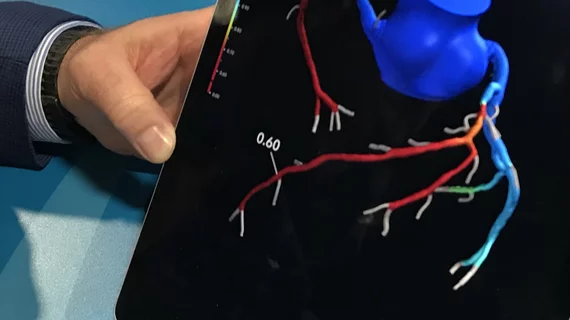HeartFlow’s AI-powered CAD offering receives new CPT code with improved reimbursement rate
HeartFlow has announced that its FFRCT Analysis tool, which uses artificial intelligence (AI) to evaluate cardiac computed tomography angiography (CCTA) exams for signs of coronary artery disease (CAD), has been transitioned to a new Category 1 CPT code.
The move, which went into effect on Jan. 1, means that the Centers for Medicare and Medicaid Services has increased reimbursement payments for the use of FFRCT in a hospital setting by approximately 7%. This covers patients treated in an outpatient capacity or those seen at physician offices or imaging centers. The new CPT code is 75580.
For this update to be finalized, the American Medical Association (AMA) had to determine that FFRCT Analysis met certain requirements in terms of its overall impact on patient care. AMA also published new recommendations on the appropriate use of this CPT code for FFRCT Analysis, emphasizing that the HeartFlow offering can be used to capture estimated coronary FFR values “anywhere within the coronary tree,” evaluate multiple lesions and guide planning for interventional treatments.
“We appreciate the AMA’s decision to assign FFRCT a Category I CPT code, a decision backed by years of research that highlights the positive impact FFRCT can have on the diagnosis and eventually treatment of patients with coronary artery disease,” John Farquhar, CEO of HeartFlow, said in a prepared statement. “This recognition emphasizes the value and importance of FFRCT Analysis to help clinicians accurately diagnose CAD in patients. Better reimbursement for hospitals leads to improved accessibility to this technology, which is a win for everyone involved, most notably patients.”
HeartFlow recently celebrated the fact that more than 250,000 heart patients have now undergone CAD evaluations with FFRCT Analysis. The success of this technology has helped the company branch out and develop other AI-powered CT analysis tools for cardiovascular disease, including Plaque Analysis and RoadMap Analysis.
Additional details from HeartFlow about this updated reimbursement code are available here.

